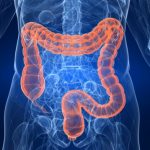 Irritable bowel syndrome, or IBS, is a gastrointestinal disorder that can often be mistaken for other digestive problems, such as lactose intolerance. Knowing the difference between the disorders is important for finding effective treatment and thus comfort.
Irritable bowel syndrome, or IBS, is a gastrointestinal disorder that can often be mistaken for other digestive problems, such as lactose intolerance. Knowing the difference between the disorders is important for finding effective treatment and thus comfort.
Irritable bowel syndrome (IBS) is a reaction similar to a food allergy. There are a number of potential causes, but in many people, IBS is triggered by certain foods. Irritable bowel syndrome affects people in different ways. For instance, some people have mild IBS, while others experience severe IBS. Episodes tend to come and go, and can be aggravated by stress. Irritable bowel syndrome affects about one in five people, with most cases developing sometime between the ages of 20 to 30. In most situations, IBS symptoms are chronic, meaning, you have them for life. On the upside, there are periods of long remission, and symptoms can turn from severe to mild over several years.
Advertisement
Lactose intolerance is the inability to digest a substance called lactose, a sugar found in milk and dairy products. A deficiency of an enzyme called lactase (produced in the small intestine) is often responsible for lactose intolerance. Many people who have low levels of lactase can still digest milk products without having any problems. However, people who are truly lactose intolerant experience symptoms shortly after they eat dairy foods.
Is it IBS or lactose intolerance?
Perhaps, you are having stomach problems and don’t know what to make of it. Let’s look at IBS vs. lactose intolerance.
Milk can sometimes trigger IBS, so this can throw people off, but it is clear to gastrointestinal specialists that sensitivity to milk is directly linked to lactose intolerance. Lactose intolerance is definitely not IBS, and can be dealt with swiftly and easily. When people think they are lactose intolerant, cut out all dairy products, and still have digestive problems, they should be examined to see if they have IBS.
The difference between irritable bowel syndrome and lactose intolerance may seem to be simple, but much of the difficulty is in the fact that we have very busy lives, so it can be hard to keep track of what we are doing and what we are eating every day. Both of these conditions require careful attention to food consumption. The other issue is that IBS and lactose intolerance share some of the same symptoms, as you will read later in this article.
IBS vs. lactose intolerance: U. S. prevalence
 The International Foundation for Functional Gastrointestinal Disorders reports that every year between 2.4 and 3.5 million people visit a doctor for IBS in the United States alone. Approximately 40 percent have mild irritable bowel syndrome, 35 percent suffer moderate symptoms, while 25 percent have a severe case of IBS. Doctors say that even though IBS is so prevalent, many people don’t recognize the symptoms.
The International Foundation for Functional Gastrointestinal Disorders reports that every year between 2.4 and 3.5 million people visit a doctor for IBS in the United States alone. Approximately 40 percent have mild irritable bowel syndrome, 35 percent suffer moderate symptoms, while 25 percent have a severe case of IBS. Doctors say that even though IBS is so prevalent, many people don’t recognize the symptoms.
Understanding the signs and symptoms and knowing how to keep the condition under control is important not only for the wellbeing of the individual, but also for the country. The cost to society in terms of medical expenses and productivity loss due to work absenteeism is huge. Some estimates put it in the range of about 20 billion annually.
When it comes to lactose hypersensitivity, you have likely heard people mention that they are intolerant, yet the medical community has had difficulty establishing statistical data on the condition. This is because lactose intolerance can be hard to define and many people do not report their condition. What we do know is that about 75 percent of the world’s population, including 25 percent of those living in the United States, lose their lactase enzymes when they are babies. These people are considered “lactase deficient” until they are officially diagnosed lactose intolerant.
IBS vs. lactose intolerance: Signs and symptoms
If you have IBS, you may experience flare-ups from time to time. The symptoms may improve for a few days, weeks, or months, and then come back. There are even some cases where the symptoms subside for several months at a time.
Here are some of the common signs and symptoms of irritable bowel syndrome:
- Cramping in stomach
- Diarrhea or constipation
- Bloating and swelling of stomach
- Excessive gas
- Urgency (need to go to toilet suddenly)
- Passing mucus from your bottom
Some people with IBS can experience other problems, including a lack of energy, back pain, bladder problems, and pain during sex. IBS symptoms can have a big impact on daily life, leading to depression and anxiety as well.
Symptoms of lactose intolerance are usually experienced after eating or drinking foods that contain lactose. These foods include milk, ice cream, cheese, butter, cream sauces, yogurt, whipping cream and coffee creamers, puddings or custards, and cream soups.
Here are some common signs and symptoms of lactose intolerance:
- Abdominal cramping
- Nausea
- Vomiting
- Bloating
- Gas
While lactose intolerance is not dangerous, it can be very uncomfortable and stressful.
Difference between irritable bowel syndrome and lactose intolerance causes
 Just what causes IBS? Well, that is still not fully understood. Years ago, medical scientists thought it was simply stress, but now they believe that while stress can aggravate irritable bowel syndrome, it is actually caused by some sort of disturbance in the way the brain and stomach interact.
Just what causes IBS? Well, that is still not fully understood. Years ago, medical scientists thought it was simply stress, but now they believe that while stress can aggravate irritable bowel syndrome, it is actually caused by some sort of disturbance in the way the brain and stomach interact.
Our gastrointestinal tract is a complex system, involving nerves that exchange information among organs, the spinal cord, as well as the brain. The colon reacts to the information by either contracting or relaxing muscles. Under normal circumstances, strong contractions move waste through the body after nutrients have been absorbed. However, in people with IBS, the nerves controlling those muscles are unusually active. Ordinary stimulators, such as eating certain foods, getting stressed out, taking certain medications, and going through hormonal fluctuations seem to trigger a response that causes spasms. Sometimes those spasms cause stools to move rapidly leading to diarrhea, and sometimes they do the opposite – the stool remains in the colon causing constipation.
The difference between irritable bowel syndrome and lactose intolerance is that we have a much better grasp on what is causing the latter. After eating or drinking something containing lactose, it goes into the stomach where it is digested. Lactase in the small intestine breaks down the lactose. When there isn’t enough lactase, unabsorbed lactose moves through the stomach and into the colon, where fatty acids and gas is produced. The breakdown of lactose in the colon leads to the intolerance symptoms.
Irritable bowel syndrome vs. lactose intolerance: Risk factors
A lot of people without IBS can experience symptoms that are similar to irritable bowel syndrome. You are more apt to get diagnosed with IBS if you are under the age of 45. Statistics show that this is a condition that strikes the younger population. While we don’t know why, it seems that about twice as many women as men get IBS. Other risk factors include a family history of IBS and a history of depression or anxiety.
It is important to note that people who suffer from IBS and have diarrhea are at risk of weight loss, dehydration, and malnourishment. Those who suffer from constipation can also suffer malnourishment if they remove a lot of foods from their diet and don’t get enough of the nutrients their body needs.
The risk factors linked to lactose intolerance include increasing age, ethnicity (it is more common in people of African, Asian, Hispanic, and American Indian descent), any diseases affecting the small intestine, and certain cancer treatments.
Diagnosing IBS vs. lactose intolerance
 When diagnosing irritable bowel syndrome, the doctor will ask a lot of questions and start ruling out other conditions first. Researchers have created two sets of diagnostic guidelines for IBS – both based on symptoms once other conditions have been ruled out. One criteria are called “Rome”. Under this guideline, you must have certain symptoms before a doctor will diagnose IBS. These symptoms include abdominal pain and discomfort that lasts at least three days a month in the last three months and are associated with two or more of the following: defecation, altered frequency of stool, or altered consistency of stool. The other set of criteria is called “Manning”. This focuses on pain relieved by defecation, incomplete bowel movements, mucus in the stool, and changes in stool consistency.
When diagnosing irritable bowel syndrome, the doctor will ask a lot of questions and start ruling out other conditions first. Researchers have created two sets of diagnostic guidelines for IBS – both based on symptoms once other conditions have been ruled out. One criteria are called “Rome”. Under this guideline, you must have certain symptoms before a doctor will diagnose IBS. These symptoms include abdominal pain and discomfort that lasts at least three days a month in the last three months and are associated with two or more of the following: defecation, altered frequency of stool, or altered consistency of stool. The other set of criteria is called “Manning”. This focuses on pain relieved by defecation, incomplete bowel movements, mucus in the stool, and changes in stool consistency.
When diagnosing lactose intolerance, your doctor will suggest trying to eliminate dairy products. Often, maintaining a diary of food consumption helps keep people on track. Other tests are needed to confirm the diagnosis of lactose intolerance. One of the tests is called the hydrogen breath test. This is a test that requires the patient to blow in a balloon-like bag so that their breath can be tested to see how much hydrogen is present. Following a drink of lactose solution, the breath is tested again and again (every 15 minutes) for a few hours. At the end, if results show the breath has a lot of hydrogen, the patient will be deemed lactose intolerant. A lactose tolerance test can also be given by simply getting the individual to drink a lactose solution and then taking a blood sample from the arm. The blood is tested to see how much glucose it contains. A person who is lactose intolerant will have blood sugar levels that will rise slowly, or not at all.
Treatment options for irritable bowel syndrome and lactose intolerance
In mild cases of IBS, most people are successful in treating themselves by avoiding or learning to cope with stress, as well as making lifestyle changes, including diet adjustments. Avoiding foods that can trigger symptoms, getting a good night’s sleep, drinking plenty of fluids, and exercising have all proved to be helpful to those who suffer from IBS.
Some of the foods that many IBS sufferers have difficulty with are raw fruits, cabbage, broccoli, cauliflower, chocolate, fried or fatty foods, spicy foods, carbonated drinks, and alcohol.
Advertisement
In some situations, lifestyle adjustments aren’t enough. Some people who have moderate to severe IBS have had to turn to fiber supplements in cases where constipation is the issue, or antidiarrheal medications in cases where constant bowel movements are the problem. Other medications to help relieve painful spasms are also available. When people become overwhelmed with the condition and experience depression, counseling or antidepressant medications can be prescribed.
People who suffer from IBS are advised to eat at regular intervals to help regulate bowel function. Drinking a lot of water every day is also highly recommended. Experts warn that you should use antidiarrheal medications and laxatives with caution. Your body can become dependent on them.
Neither IBS nor lactose intolerance is pleasant. Both can be painful and distressing. Getting a proper diagnosis can help sufferers bring these conditions under control. While there is no cure for either IBS or lactose intolerance, it is good to know that there are many simple ways to lessen the symptoms and bring about some level of relief.
